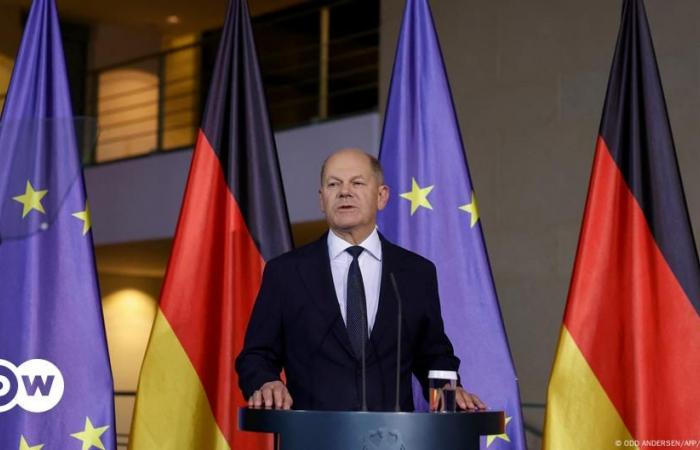Already in recent days and weeks, the tension was palpable in Germany. Numerous meetings between coalition officials were organized, and rumors multiplied.
It was finally on Wednesday evening, a little after 9 p.m., that the German Chancellor, Olaf Scholz, appeared before the press at the Chancellery. Looking serious, the chancellor announced his decision to dismiss his liberal finance minister, Christian Lindner.
The immediate consequence shook Germany: the ruling coalition, between social democrats, ecologists and liberals, broke up. Without the liberals of the FDP, the coalition loses its majority in the Bundestag, the German Parliament, and this makes the exercise of power almost impossible.
Christian Lindner is not only the most important minister in the ranks of the FDP but also the party leader.
Following the dismissal, the FDP withdrew all its ministers from the government. This morning, however, the Minister of Transport indicated that he wanted to keep his morocco but that he was leaving the FDP.
What are the reasons for this breakup?
It was no secret that relations between Christian Lindner, the finance minister, and the chancellor were more than stormy. Olaf Scholz expressed the reasons for this on Wednesday evening: he spoke of a trust betrayed by Christian Lindner on numerous occasions, an irresponsible minister who only seeks to show off, without thinking about the well-being of the country.
Cold anger and very harsh words from the chancellor which come after months of dissension around economic policy, in a country which will experience a second consecutive year of recession. Olaf Scholz pushed for a 2025 budget to support industry, the engine of the country’s economy. While the liberals wanted massive tax cuts, especially for the richest, without any desire to compromise.
Coalition breakdowns are extremely rare in Germany.
What to expect in the coming weeks?
Olaf Scholz announced on Wednesday evening that he would take a vote of confidence from MPs in the Bundestag. It will take place on January 15 and will most likely end with early legislative elections at the end of March 2025 at the latest. This would then be six months before the regularly scheduled date for the elections.
Chancellor Scholz is thus seeking to get Germany out of a situation of budgetary blockage. In a context where there are many challenges: an economy that is sinking into crisis, in addition the election of Donald Trump in the United States which will force Germany and its European partners to invest heavily in defense. Then there will also be the question of support for Ukraine if the Americans withdraw from this responsibility.






